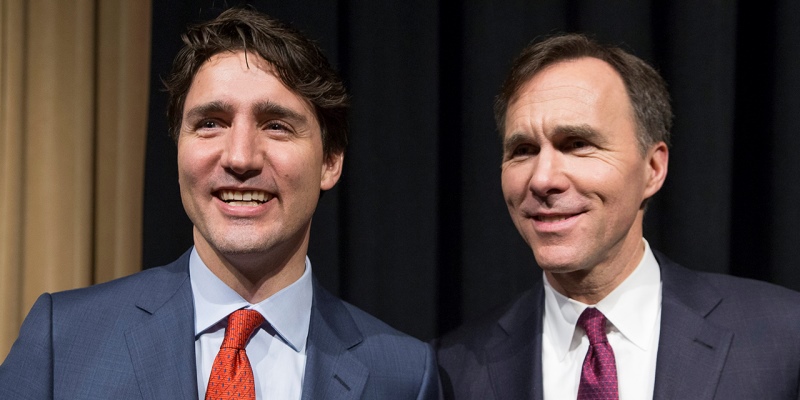Trudeau government plan would have undermined Opposition ability to hold government to account

Numerous media outlets including the National Post reported Monday that the Trudeau government planned to introduce a bill in the House of Commons that gave sweeping powers to the finance minister to unilaterally impose taxes and spend money without parliamentary approval until the end of 2021. COVID-19 was the excuse for this extraordinary proposal. In the face of widespread disapproval, the government has since backtracked. The prospect of granting discretionary tax-and-spend powers to the executive, whether now or in the future, raises an obvious question—can this be done under the Canadian Constitution? The answer is definitely maybe. As the saying goes, the devil is in the details.
Section 53 of the Constitution Act 1867 reads:
Bills for appropriating any Part of the Public Revenue, or for imposing any Tax or Impost, shall originate in the House of Commons.
Section 53 is the Constitution’s “no taxation without representation” section. It provides that at the federal level only the House of Commons can decide to tax, which means that the government may not levy a tax except under the authority of a statute originating in the House and passed by Parliament. The section effectively prohibits the cabinet, the finance minister and other public officials from creating or imposing taxes on their own initiative. The Supreme Court of Canada has said that the principle of no taxation without representation is central to the concept of democracy and that the purpose of section 53 is to constitutionalize the principle that taxation powers must be subject to parliamentary oversight. As the Court stated in Westbank First Nation v. British Columbia Hydro and Power Authority:
…individuals being taxed in a democracy have the right to have their elected representatives debate whether their money should be appropriated, and determine how it should be spent.
This rule protects citizens from having their money taken by an unsupervised administration that seeks to avoid democratic accountability.
However, the rule that taxes must originate in the legislature does not mean that the power to tax cannot be delegated. Instead, it means that a tax cannot arise as an initiative of the executive branch without authorization of the legislature or arise incidentally in delegated legislation. A delegation of taxing power is valid if express and unambiguous language is used. In Ontario English Catholic Teachers' Assn. v. Ontario (Attorney General), in a key paragraph in Supreme Court jurisprudence for determining whether a tax has statutory authority in accordance with section 53, Iacobucci J. wrote:
The delegation of the imposition of a tax is constitutional if express and unambiguous language is used in making the delegation. The animating principle is that only the legislature can impose a new tax ab initio. But if the legislature expressly and clearly authorizes the imposition of a tax by a delegated body or individual, then the requirements of the principle of "no taxation without representation" will be met. In such a situation, the delegated authority is not being used to impose a completely new tax, but only to impose a tax that has been approved by the legislature. The democratic principle is thereby preserved in two ways. First, the legislation expressly delegating the imposition of a tax must be approved by the legislature. Second, the government enacting the delegating legislation remains ultimately accountable to the electorate at the next general election.
A statute that gave the finance minister a blank cheque to impose any taxes he wished would run afoul of section 53. However, a statute that assigned to the minister the discretion to prescribe tax rates, to identify start or end dates for the imposition of taxes, or to create taxes specifically contemplated in a detailed statutory framework would likely be permissible. Therefore, the constitutionality of the proposed Liberal bill would depend upon whether it provides, with express and unambiguous language, discretion on specific matters within a detailed statutory framework or purports to give to the finance minister vague sweeping powers to impose new taxes on his own initiative.
By convention of parliamentary government, not written down in the Constitution, the prime minister and cabinet must have the confidence of a majority of sitting members of the House of Commons. Convention demands that a government defeated on a confidence motion resign. This convention is particularly important in a minority Parliament. Budgetary motions are matters of confidence. A statute that delegated power to cabinet or the finance minister to impose taxes and spend money without needing to return to the House for further authorization until 2022 would significantly undermine the ability of Opposition parties to hold the government to account.
Author:
Subscribe to the Fraser Institute
Get the latest news from the Fraser Institute on the latest research studies, news and events.

